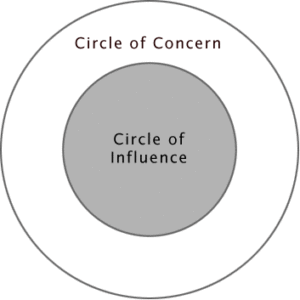 In this series of posts, I have been exploring why it is important to involve the whole parish in the initiation process and some ways we might make that happen. We explore the same questions on our TeamRCIA Making Disciples Institutes, and we conclude by asking the participants:
In this series of posts, I have been exploring why it is important to involve the whole parish in the initiation process and some ways we might make that happen. We explore the same questions on our TeamRCIA Making Disciples Institutes, and we conclude by asking the participants:
What would happen if we actually engaged parishioners in the initiation process?
These are some typical responses:
|
|
So if we can expect all these amazing things if we get the parish involved, what’s stopping us?
Fear of change
Probably the biggest roadblock is fear of change. The Rite of Christian Initiation of Adults envisions a radically different church than the one most of us experience. The RCIA envisions a church that less focused on intellectual assent to doctrine and more focused on a life of prayer and action leading to justice. It’s not an either/or proposition, but so much of your formation and mine has been about clarifying and solidifying the doctrines we believe. It is difficult for us to change the emphasis to an action-oriented church that values concern for the poor as the primary goal and motivation of everything we do as a parish.
Fear of failure
Many of us in church ministry are afraid of failure. Some of our fear might stem from childhood wounds. Some of the fear comes, ironically, from an unforgiving culture. We worry that if we become agents for change, and the change is not successful, the pastor, or the DRE, or the parishioners will hold us accountable for making their lives more difficult. Failure, however, is the price of success. The most successful people we know of reached their success through failing. For example:
- Basketball star Michael Jordan was cut from his high school basketball team because his coach didn’t see any potential in him.
- Media mogul Oprah Winfrey was fired from her first television job as an anchor in Baltimore.
- Inventor and entrepreneur Thomas Edison was told by his teachers that he was “too stupid to learn anything.”
We might not ever be Michael Jordan or Oprah Winfrey, but we can treat failure the same way they did. Failure can teach us things we would never otherwise learn. If you think back over your life, your best, most long-lasting learning experiences probably came through failure. Accepting failure and learning from the insights it generates is a powerful life skill.
Fear of success
Another roadblock might be fear of success. This is a bit counter-intuitive, but much of what I read about goal setting lists fear of success as a major stumbling block. The thinking goes like this. As long as what we are working on or striving for doesn’t cause any major change in the status quo, we feel fine. But as soon as it becomes clear that what we are trying to accomplish is actually going to work; we get scared. We might have to take on more responsibility; we might have to be more publicly visible; we might have to be more accountable; we might be opening ourselves up for more criticism. Whatever happens, we are entering uncharted territory, and that’s scary.
Lack of authority
Sometimes we just don’t have the authority to make change. At least that’s what we tell ourselves. We may not have authority, but we have influence. Steven Covey, author of Seven Habits of Highly Effective People, writes about the two circles we all live in. There is a circle of concern and a circle of influence. Frustration arises when we try to solve problems that are within our circle of concern but outside our circle of influence. When we spend our energy on things we cannot influence, our failure makes us think we have no influence.

We can be more proactive by focusing on areas that are inside our circle of influence. You get two benefits by focusing on what you can influence. First, you get a higher level of satisfaction that you are actually making a difference. And that will in turn increase your circle of influence. Small successes lead to larger successes which lead to more influence over time.
What’s stopping you?
What do you think would happen if you got your whole parish fully involved in the initiation process? And what’s stopping you? Please share your thoughts below.








When the whole parish is involved, through sharing, the word is revealed.
It seems the focus of the parish is self maintenance, not evangelization nor caring for the needy. Sunday mass is about all most people can manage with their busy lives. There is no venue for parishioners to even get to talk with those in the catechumenate. How can I expect them to care?
I agree with Paula. When the clergy is too busy micro-managing and whose interest or questions are only “How many?” ‘Do they know their prayers?” etc. Decides that we will have first communion on Mothers’ Day, never has time to even meet the catechumens, never even mentions them in the Sunday prayer of the faithful…. the Catechists have responsibilities but no support from the pastor – ONE HAS VERY LITTLE SPACE FOR CREATIVITY –
If we keep on training a clergy to be pre-Vatican 2, have no sense of community( e.g. Thank you for coming to my Mass!”… Sorry I am venting – but it is how many of the Faithful experience “The Church” – If we complain we are told, “But you are the Church” If we take this seriously and act accordingly, we are reprimanded “I am the priest, here!!”
I am still not giving up my friends – but I still believe that if so many have become passive is that are clergy are too often dispensers of Sacraments and office clerks!
The Faithful have not allowed to speak – to dialogue…
I would really like to see something where we agree that the problem is not only the catechists….
Margot
Hi All,
I just want to chime in to say that I’ve worked with lots of priests who are very committed to the RCIA process, the principles of Vatican II, and active lay involvement in the church. I know there are also priests at the other end of the spectrum as well, of course.
But that’s true of all of us, isn’t it? I’ve worked with liturgists, musicians, catechists, school teachers, and youth ministers who ranged from completely awesome to “why in the world is this person in ministry?”
That’s why I included the last point from Stephen Covey about our circle of influence. Maybe we can’t influence the priest. But that doesn’t mean we have *no* influence. Sometimes we can use our influence to eventually get past the roadblock. And sometimes a roadblock is a sign from the Holy Spirit to take a different path.
I don’t mean to sound too pollyannish. I’ve been in incredibly frustrating situations that I could find no solution for. But from the big picture view, I wouldn’t be doing anything else but this.
Hi Nick and all
I am a convert for 8 years and are involved with RCIA for close to 5. I am involved in faith formations as well beginning last year.
I guessed most in my seniors in RCIA adopted the format that has been in existence since it was formed. The outcome is the common problem of disappearing or you called it hoop jumpers, ” Sunday’s Catholics.”
For last 3 years , I pondered, why the RCIA process has not resulted in the way it was intended ? To bring His Chosen one closer to Him?
My parish priest is bogged down by administrative tasks, 3 priests in my parish celebrated 16 masses between themselves through the week. there are other events, weddings, Rcia classes………….
I see many ministries in my Church, I am too pondering how many “apostles and disciples are in the ministries ?
I had a bad year in the RCIA process last year. Most of the inquirers were hoop jumpers. Bad because I couldn’t manage them/process well.
I am in the circle of concern, am wondering how can I be an influence ? Well I have decided for this year RCIA group I shall be bold and creative using different methods to EVANGELISE the Gospel. I am weary(disapprove by core team or priest) because I will be different with the other 7 groups.
Hopefully by my different methods in this journeying process, I shall be able to influence the process. I will pray about it. If I failed I will learnt. James 1: 2 to 8.
Just my sharing .